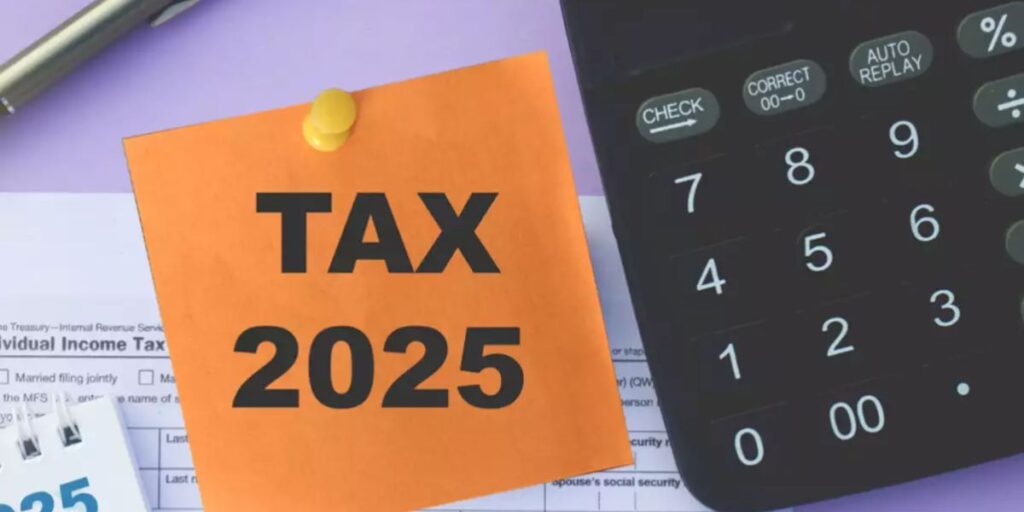As the April tax deadline approaches, millions of Americans are scrambling to file their tax returns on time. But if you’re not quite ready to submit your paperwork, don’t panic—there’s still a way to avoid penalties and buy yourself more time. Filing a tax extension can give you an extra six months to get your documents in order and send in your return without facing late filing fees.
Here’s what you need to know about getting a tax extension, how it works, and what you need to do before the deadline.
What Is a Tax Extension?
A tax extension allows taxpayers to extend the deadline to file their federal income tax return. Instead of the usual mid-April deadline (April 15 2025), an extension gives you until October 15, 2025 to file your return.
However, it’s important to note that an extension only gives you more time to file, not to pay. If you owe taxes, they are still due by the original deadline. Failing to pay by then can lead to interest and penalties—even if you file for an extension.
Who Can File an Extension?
Almost any taxpayer can request an extension, including individuals, businesses, and those living or working abroad. There’s no need to explain why you’re requesting it, and the process is relatively simple.
Here are some common reasons people choose to file for an extension:
- Waiting on missing tax documents (like W-2s or 1099s)
- Needing more time to organize finances or consult a tax professional
- Dealing with unexpected life events (e.g., illness, relocation, emergencies)
- Wanting to maximize deductions or review potential tax credits
How to File a Tax Extension
Filing an extension is straightforward and can be done in several ways. The most common method is filing IRS Form 4868 (Application for Automatic Extension of Time to File U.S. Individual Income Tax Return).
Here are three ways to submit your extension request:
- E-file through IRS Free File – Available at IRS.gov, this free service allows taxpayers of all income levels to file Form 4868 online.
- Use Tax Software or a Tax Professional – Most commercial tax software programs (like TurboTax or H&R Block) offer the option to file an extension electronically.
- Mail a Paper Form 4868 – If you prefer traditional mail, download Form 4868, fill it out, and send it to the address listed for your state.
Payment Still Due by the Deadline
Even if you get more time to file, you still must estimate and pay your taxes by the April deadline to avoid penalties. If you underpay or don’t pay anything, the IRS will charge interest and late-payment penalties starting April 16.
To help, the IRS provides tools like its Tax Withholding Estimator or Direct Pay system to make online payments quickly and securely.
Extension Deadlines and Summary
| Task | Deadline |
|---|---|
| File your federal tax return | April 15, 2025 |
| Request an extension (Form 4868) | April 15, 2025 |
| Final tax return due with extension | October 15, 2025 |
State Taxes May Vary
While a federal extension gives you more time to file with the IRS, each state has its own rules. Some states automatically grant the same extension as the federal government, while others require you to file a separate state extension request.
Be sure to check your state’s tax authority website to confirm their policy and ensure compliance.
What Happens If You Miss the Deadline Without an Extension?
If you don’t file your return or an extension by the deadline, the IRS may charge a Failure to File Penalty, which can be 5% of the unpaid tax per month, up to a maximum of 25%. Combined with late payment penalties and interest, the costs can add up quickly.
If you’re owed a refund, however, there is no penalty for filing late—but you’ll want to file soon to claim your money, as the IRS only gives you three years to do so.
Final Thoughts
Filing taxes can feel overwhelming, especially if you’re not ready by the deadline. Fortunately, the IRS offers a simple extension process to ease the pressure and give you time to prepare an accurate return. Just remember that an extension doesn’t delay your tax payment—only your tax filing.
Whether you’re dealing with life’s curveballs or just need more time to track down your documents, filing for a tax extension is a smart, responsible move. Don’t wait until the last minute—take action now to stay in good standing with the IRS and avoid unnecessary penalties.





More Stories
Tax Season is Almost Over, but Filing an Extension Can Buy You Extra Time to Submit Your Return Without Late Fees
Tax Season is Almost Over, but Filing an Extension Can Buy You Extra Time to Submit Your Return Without Late Fees
Tax Season is Almost Over, but Filing an Extension Can Buy You Extra Time to Submit Your Return Without Late Fees